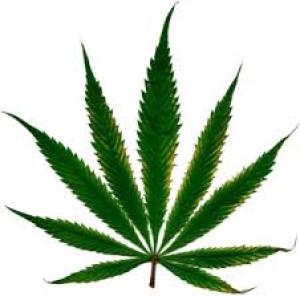Canada becomes the second country and the first G7 member to free the weed.
What a difference a midterm election can make.
Gallup and Pew both report record levels of support for marijuana legalization.
Arizona's attorney general backs away from arguing that hash is not medical marijuana, the Indiana legislature balks on medical marijuana, Missouri medical marijuana initiatives have raised big bucks, and more.
Take the time to comment on how marijuana should be classified under international drug treaties, an Indiana legislative committee rejects medical marijuana, Ohio's Democratic gubernatorial candidate resorts to drug war rhetoric, and more.
A new Gallup poll shows still rising support for marijuana legalization, a new report from the IDPC calls for a radical shift in UN drug control policies, Bangladesh moves toward passing a bill mandating the death penalty or life in prison for even possessing small amounts of some drugs, and more.
The CDC's latest drug overdose numbers are out, Arizona's attorney general retreats on hashish, the Justice Department clears the way for harm reduction measures at music venues, and more.
A new poll has marijuana legalization on the cusp of majority support even in Wyoming, the New York state Senate releases its report on the state's opioid crisis, and more.
As of Wednesday, October 17, marijuana is legal in Canada. Our northern neighbor becomes the second country to fully legalize weed (after Uruguay led the way in 2013), and the first major industrial power to do so.
While the Liberal-dominated federal parliament passed the C-45 legalization bill earlier this year, October 17 marks the beginning of legal marijuana sales and commerce. Under Canada's federal legalization, there will now be an overarching national regulatory framework, but each province establishes its own system of licensing and regulating marijuana businesses.
Like liquor laws in the US, Canada's provincial marijuana laws will have some variation. In some provinces, such as Alberta and British Columbia, licensed producers will store their product in government-regulated warehouses, then ship it to retail pot outlets and online customers. Others, such as Newfoundland, will have growers ship directly to stores or to customers through the mail. Ontario, the country's most populous province, will at first only have mail deliveries because the new Conservative provincial government rejected a plan for state-owned stores in favor of privately held shops. Ontario doesn't expect to have any licensed pot shops open for business until April.
Marijuana consumers will pay a federal tax of $1 per gram or 10 percent, whichever is higher, with the federal government keeping one-fourth of those revenues and returning the rest to the provinces. The provinces can also tax marijuana sales, and consumers will have to pay local sales taxes on top of that.
Wednesday's roll-out of the legal pot system isn't exactly starting with a bang. Only about 100 pot shops will be open across the country of 37 million, and only one in the entire province of British Columbia. Many, many more will be coming as the provinces finalize regulatory approaches and potential operators get their permitting in order.
There won't be any edibles for sale for now; marijuana-infused foods and concentrates are expected to be available sometime next year. In the meantime, what's on offer will be buds, capsules, tinctures, and seeds.
That Canada has now legalized marijuana is a very big deal, American marijuana and drug reform groups say.
"Canada's move to legalize marijuana is a historic rebuke to the disastrous global war on drugs, which has ruined millions of lives," said Hannah Hetzer, global marijuana policy analyst for the Drug Policy Alliance. "Many countries are searching for innovative approaches to drug policy that emphasize health and rights, rather than repression. By taking this bold and principled step, Canada will likely become an inspiration for many other countries," she said.
"The legalization of marijuana in Canada, and the likely changes we will see on drug policy in Mexico under its new government, make the United States federal government's prohibition on marijuana even more untenable. It's long past time for Congress and the administration to take action on this issue," Hetzer concluded.
"Canada is setting a strong example for how to end marijuana prohibition at the national level and replace it with a system of regulated production and sales that is largely governed at the local level," said Steve Hawkins, executive director of the Marijuana Policy Project.
"The Canadian model is rather similar to what many envision for the US, and in many ways it mirrors what is happening here, as states have taken the lead in regulating commercial cannabis activity," Hawkins continued. "The big difference -- and it is a critical difference -- is the blessing provincial governments have received from their federal government. It is time for Congress to step up and take similar action to harmonize our nation's state and federal marijuana policies."
Indeed, Canada's full federal legalization is going to provide an edge for Canadian marijuana companies and researchers compared to the US. Even though nine states, including California (which has more people than Canada), the District of Columbia, and the Northern Mariana Islands have legalized marijuana, the continuing federal prohibition on marijuana and its continuing classification as a Schedule I drug continue to create a significant hurdle for US pot businesses and research efforts.
America's loss could be Canada's gain, Hawkins said.
"As just the second country and the first G7 nation to end marijuana prohibition, Canada has positioned itself as a global leader for cannabis business and development. As the US continues to face federal roadblocks to cannabis-related medical research, Canada could very well become the world leader in discovering new cannabis-based medicines. The country has already begun to experience some of the economic benefits that come with being one of the first nations to establish a legal marijuana market for adult use. It won't be long before it begins to see the public health and safety benefits that stem from replacing an illegal market with a regulated one," he explained.
"Canada is going to generate significant revenue, create all sorts of jobs and business opportunities, and become the world leader for cannabis-related research and development," Hawkins continued. "Hopefully Congress will take notice quickly and that competitive American spirit will kick in sooner rather than later."
We'll see about that after the next elections. In the meantime, Canada is going to take that competitive advantage and run with it. And Mexico's president-elect, Andres Manuel Lopez Obrador, is making noises about legalizing marijuana south of the border. Wouldn't it be ironic if the United States turned out to be the last country in North America to free the weed?
This article was produced by Drug Reporter, a project of the Independent Media Institute. The Drug Policy Alliance is a financial supporter of both Drug Reporter and Drug War Chronicle.
back to top
Last week, Rep. Earl Blumenauer (D-OR) unveiled a plan for a Democratically-led House to push through federal marijuana legalization by the end of 2019. In an eight-page memo to the House Democratic leadership laid out his roadmap to ending Reefer Madness.

Congressional Cannabis Caucus founder Rep. Earl Blumenauer (D-OR)
Blumenauer isn't just any old congressman. The longtime stalwart marijuana reformer is the founder of the Congressional Cannabis Caucus and a leading voice in the fight to bring marijuana out of the shadows. And he's ready to do it once Congress gets back to work in January.
"Congress is out of step with the American people and the states on cannabis," Blumenauer wrote in the memo, citing polling showing 69% of registered voters support legalizing marijuana. "We have an opportunity to correct course if Democrats win big in November. There's no question: cannabis prohibition will end."
Most projections have the Democrats taking back control of the House in November. The Senate is a different story, with the odds against the party being able to overcome Republican control this year.
Winning the House is critical. During the current Congress, progress has been stymied by House Republican leaders, who have blocked floor votes on dozens of cannabis-related amendments. Not one marijuana reform bill has gotten a House floor vote in the past two years.
If the House goes Democratic and the party can push a legalization bill through that chamber, Blumenauer argues, then pressure will mount on even a GOP-controlled Senate, where there is already growing bipartisan support for reform.
But Senate Republicans aren't the only potential obstacle. The current House Democratic leadership hasn't exactly been chomping at the bit to make freeing the weed a priority next year.
But while there is majority support for ending marijuana prohibition among House Democrats, the party's leadership has so far appeared lukewarm to the idea of prioritizing the issue in 2019.
When Minority Whip Steny Hoyer (D-MD) was asked about pushing cannabis reform next year, he replied that top Democrats "haven't talked about that," and Minority Leader Nancy Pelosi (D-CA), the frontrunner for House Speaker if the Democrats win, seems willing to defer to President Trump on the matter.
"I don't know where the president is on any of this," she said. "So any decision about how we go forward would have to reflect where we can get the result."
But despite his notoriously pot prohibitionist attorney general, President Trump may not get in the way of marijuana legalization. As a candidate in 2016, he pledged to respect state marijuana laws, and earlier this year, as part of a deal with pot state Sen. Cory Gardner (R-CO), he told Gardner he would back "a federalism-based legislative solution to fix this states' rights issue once and for all Democrats need to be prepared to act when Congress reconvenes next year or risk giving Trump a freebie, Blumenauer warned.
"Democrats should lead the way," he wrote. "If we fail to act swiftly, I fear as the 2020 election campaign approaches, Donald Trump will claim credit for our work in an effort to shore up support -- especially from young voters. Democrats must seize the moment."
Beginning in January, the Democrats need to get moving, Blumenauer counseled.
"For too long, under Republican leadership, these issues have not been allowed to be fully debated. We must change that approach. Almost every standing House committee has jurisdiction over some aspects of marijuana policy. Within the first six months, these committees should hold hearings, bring in experts, and discuss possible policy fixes," he wrote.
Blumenauer is calling for the numerous hearings by March, including:
- A House Judiciary Committee hearing on descheduling marijuana;
- A House Veterans Affairs Committee hearing on safe and equal access to medical marijuana for veterans;
- A House Energy and Commerce Committee hearing on marijuana research;
- A House Ways and Means Committee hearing on the unequal and unfair taxation of marijuana businesses; and
- A House Administration Committee hearing on access to financial services for candidates who support marijuana legalization.
From April to June, Blumenauer wants relevant committees to "start marking up bills in their jurisdiction to responsibly narrow the marijuana policy gap -- the gap between federal and state marijuana laws -- before the end of the year."
Those issues would include addressing the racial injustices of the unequal application of federal marijuana laws, protection of state marijuana laws, removal of barriers to marijuana research, civil asset forfeiture protections, job protections, access to financial services, and equal taxation for marijuana businesses, among others.
Blumenauer wants to see bills addressing these issues passed by August, and then movement to get a legalization bill through the Congress by year's end.
"With the marijuana policy gap diminished, after months of hearings and markups, the House should pass a full descheduling bill and work with Senate allies to guide the bill through Senate passage," he wrote. "Our chances in the Senate depend both on the November elections and increased public pressure following House passage. While the Senate has been slower on marijuana policy reform than the House and the American people, it now has almost 20 introduced bills in an effort to catch up with the House. We must build on this momentum."
If all goes well, Blumenauer predicts, "By the end of 2019, marijuana will be legal at the federal level, and states allowed to responsibly regulate its use. The federal government will not interfere in state efforts to responsibly regulate marijuana use within their borders."
All of this, though, starts with winning the House in November. As Blumenauer notes, with even Donald Trump having signaled support for a state-regulated approach to marijuana, "the only obstacle standing in our way is the Republican leadership in Congress."
This article was produced by Drug Reporter, a project of the Independent Media Institute.
back to top
Two of the country's top polling organizations have released surveys this month showing support for marijuana legalization continues to increase and is now at record highs. A Gallup poll released Monday had support at 69 percent, while a Pew Research Center poll released two weeks earlier had support at 62 percent.
The Gallup figure is up two points over last year, while Pew is up one. More impressively, the percentage of people supporting legalization nationwide has doubled since 2000, when both polls reported support at only 31 percent.
"There is a growing sense among the US population that it is time to end our nation's failed experiment with marijuana prohibition," responded Steve Hawkins, executive director of the Marijuana Policy Project (MPP). "People are sick and tired of adults being treated like criminals simply for consuming a substance that is, by every objective measure, less harmful than alcohol. Americans are more informed about cannabis than ever before, and they can now see that regulation is a viable and effective alternative to prohibition."
Gallup's levels of support are slightly more favorable toward legalization than Pew's, most likely due to methodological differences. In addition to the seven-point spread between the two on legalization, Pew, for example, reports a majority of Republicans still opposing legalization, while Gallup reports a first-time Republican majority in favor.
Pro-marijuana majorities can now be found across every demographic measured in the Gallup poll. Not only 53 percent of Republicans, but 71 percent of independents and three-quarters of Democrats want to free the weed, now even older Americans do, too. For the first time, a majority of those aged 55 and over (59 percent) support legalization, along with nearly two in three adults between 35 and 44 and a whopping 78 percent of 18-to-34-year-olds.
And support for legalization is now truly nationwide in the Gallup poll. As recently as 2010, only the West reported a marijuana majority, but now support is at 65 percent in the West, Midwest, and South, and even two points higher in the East.
The Pew poll found a few demographic groups not reporting majorities for legalization. In addition to Republicans, only 48 percent of Hispanics, 43 percent of white evangelicals, only 39 percent of the "Silent Generation" (people over age 75) could get behind it. But all other races, age groups, religious denominations (and atheists), and educational levels reported majorities for legalization.
The poll numbers reflect an increasing acceptance of weed as the country grows accustomed to the idea of marijuana being sold in stores (and taxed!) instead of in back alleyways. Nine states, the District of Columbia, and the territory of the Northern Marshall Islands already have legal marijuana, and another 21 allow for medical marijuana.
Four more states are voting on marijuana next month; Michigan and North Dakota on legalization, and Missouri and Utah on medical marijuana. And pot could play a role in the congressional races, too. The Democrats are already embracing it, and Republicans risk being left in the lurch.
"There are not many issues out there that enjoy majority support among both of the major political parties and in every region of the country," said MPP's Hawkins. "This support is consistently translating into wins at the ballot box, and it should further motivate elected officials to take action at the state and federal levels. Hopefully, lawmakers are paying attention to this clear trend in public opinion. If they ignore these poll numbers, they do so at the risk of seeing a drop in their own."
This article was produced by Drug Reporter, a project of the Independent Media Institute.
back to top
Arizona's attorney general backs away from arguing that hash is not medical marijuana, the Indiana legislature balks on medical marijuana, Missouri medical marijuana initiatives have raised big bucks, and more.
Arizona
Arizona Attorney General Withdraws Arguments Saying Hash Isn't Medical Marijuana. Citing fears of unintended consequences for patients, Attorney General Mark Brnovich (R) on Monday withdrew his agency's arguments that the state's medical marijuana law doesn't include hashish. The state was responding to an appeal by a medical marijuana patient who was convicted of a felony for possessing 0.05 ounces of hash. "The last thing the attorney general wants is to deny medicine to legitimate patients that may be ingesting their marijuana an in extract or a tincture-type of a form," said his spokesman Ryan Anderson.
Indiana
Indiana Study Committee Doesn't Recommend Medical Marijuana Legalization. After hearing hours of testimony Thursday, the legislature's GOP-dominated interim study committee on public health rejected a recommendation to the full legislature that medical marijuana be legalized to treat chronic health conditions. The committee also rejected any further study of medical marijuana. But one Republican lawmaker, state Rep. Jim Lucas (R-Seymour) said he planned to file a medical marijuana bill next year anyway. "I'm going to make it my mission as a legislator, as a fellow Hoosier, to make sure that this issue moves forward," Lucas said.
Missouri
Missouri Medical Marijuana Initiatives Raised Big Bucks. Two of the three medical marijuana initiatives appearing on the November ballot have successfully raised large amounts of money for their campaigns. New Approach Missouri, the group behind Amendment 2, has raised more than $1.3 million, including $285,000 from Drug Policy Action, the advocacy arm of the Drug Policy Alliance. Amendment 2 would impose a 4% on medical marijuana sales. Find the Cures, the group behind Amendment 3, which would impose a 15% tax, has raised more than $1.7 million, with $1 million coming from Springfield lawyer and physician Brad Bradshaw, who heads a board that would license medical marijuana businesses.
New Jersey
New Jersey Ponders Allowing Medical Marijuana to Treat Opioid Addiction. The state Health Department has proposed a rule change that would make medical marijuana available to potentially thousands of opioid users. "Physicians should consider marijuana as another appropriate treatment for patients with many medical conditions, especially diseases for which conventional therapies aren't working for their patients," Dr. Shereef Elnahal, the state health commissioner, said in a statement. Current rules allow only people who became addicted to opioids while trying to manage chronic pain from a musculoskeletal to qualify for medical marijuana, but the proposed new rule would allow anyone with an opioid use disorder to use it.
[For extensive information about the medical marijuana debate, presented in a neutral format, visit MedicalMarijuana.ProCon.org.]
back to top
Take the time to comment on how marijuana should be classified under international drug treaties, an Indiana legislative committee rejects medical marijuana, Ohio's Democratic gubernatorial candidate resorts to drug war rhetoric, and more.

Ohio Democratic gubernatorial candidate Richard Cordray is using drug war rhetoric. (consumerfinance.gov)
You Can Comment on How Marijuana Should Be Classified Under International Treaties. The Food and Drug Administration is accepting public comment until October 31 on how marijuana should be classified under international drug treaties. The World Health Organization will meet next month in Geneva to consider "the legitimate use, harmful use, status of national control and potential impact of international control," of marijuana and other substances, including synthetic cannabinoids and fentanyl.
Illinois Democratic Legislators Plan New Legalization Bill Next Year. State Sen. Heather Sterns (D-Chicago) and state Rep. Kelly Cassidy (D-Chicago) told a Des Plaines town hall Wednesday they are planning to reintroduce a revised draft of their Cannabis Regulation and Taxation Act when the legislature reconvenes in January.
Medical Marijuana
Indiana Study Committee Doesn't Recommend Medical Marijuana Legalization. After hearing hours of testimony Thursday, the legislature's GOP-dominated interim study committee on public health rejected a recommendation to the full legislature that medical marijuana be legalized to treat chronic health conditions. The committee also rejected any further study of medical marijuana. But one Republican lawmaker, state Rep. Jim Lucas (R-Seymour) said he planned to file a medical marijuana bill next year anyway. "I'm going to make it my mission as a legislator, as a fellow Hoosier, to make sure that this issue moves forward," Lucas said.
Drug Policy
Ohio Democratic Gubernatorial Candidate Resorts to "Tough on Drugs" Rhetoric. Democratic gubernatorial nominee Richard Cordray is resorting to old school war on drugs rhetoric as the clock ticks down on his tight race with Republican Mike DeWine winds down. Cordray has released a new ad featuring an Ohio sheriff boasting that Cordray "has called for longer sentences for drug dealers." The ad is true: Cordray has said that, as governor, he "will work with law enforcement to make sure drug dealers are convicted and serve long prison sentences." He's still not as pro-drug war as DeWine, who also wants longer sentences for drug dealers, but who opposes the state's Issue 1 ballot initiative that would defelonize drug possession. Cordray supports that.
(This article was prepared by StoptheDrugWar.org's 501(c)(4) lobbying nonprofit, the Drug Reform Coordination Network, which also pays the cost of maintaining this website. DRCNet Foundation takes no positions on candidates for public office, in compliance with section 501(c)(3) of the Internal Revenue Code, and does not pay for reporting that could be interpreted or misinterpreted as doing so.)
back to top
A new Gallup poll shows still rising support for marijuana legalization, a new report from the IDPC calls for a radical shift in UN drug control policies, Bangladesh moves toward passing a bill mandating the death penalty or life in prison for even possessing small amounts of some drugs, and more.
Marijuana PolicyGallup Poll: Two in Three Americans Now Support Legalizing Marijuana. Sixty-six percent of Americans now support legalizing marijuana, another new high in Gallup's trend over nearly half a century. The latest figure marks the third consecutive year that support on the measure has increased and established a new record. The poll is in line with other recent polls that have shown support for marijuana legalization above 60%. Gallup found last year that a slim majority of Republicans supported legal marijuana for the first time, and this year's figure, 53%, suggests continued Republican support. Views that pot should be legalized have also reached new peaks this year among Democrats (75%) and independents (71%). Democrats reached majority-level support for legalization in 2009, and independents did so in 2010.
North Dakota Poll Has Legalization Initiative Leading. A poll commissioned by LegalizeND, the group behind the Measure 3 legalization initiative, has support for the measure at 51%, with 36% opposed. The poll has a 4.9% margin of error, so support could actually be under 50%. What is encouraging is that undecideds would have to break pretty decisively against the measure for it to be defeated.
Medical Marijuana
New Jersey Ponders Allowing Medical Marijuana to Treat Opioid Addiction. The state Health Department has proposed a rule change that would make medical marijuana available to potentially thousands of opioid users. "Physicians should consider marijuana as another appropriate treatment for patients with many medical conditions, especially diseases for which conventional therapies aren't working for their patients," Dr. Shereef Elnahal, the state health commissioner, said in a statement. Current rules allow only people who became addicted to opioids while trying to manage chronic pain from a musculoskeletal to qualify for medical marijuana, but the proposed new rule would allow anyone with an opioid use disorder to use it.
International
Report Calls UN's Global War on Drugs a Failure. A major new report from the International Drug Policy Consortium says the last decade of UN anti-drug strategy has been a failure and calls for a major rethinking of global drug policy. The report argues that the UN's "war on drugs" approach has had little impact on global drug supply while generating significant negative impacts on public health, human rights, security, and development. "This report is another nail in the coffin for the war on drugs," said Ann Fordham, the Executive Director of IDPC, in a prepared statement. "The fact that governments and the UN do not see fit to properly evaluate the disastrous impact of the last ten years of drug policy is depressingly unsurprising. Governments will meet next March at the UN and will likely rubber-stamp more of the same for the next decade in drug policy. This would be a gross dereliction of duty and a recipe for more blood spilled in the name of drug control." [Disclosure: StoptheDrugWar.org is an IDPC member group and provided feedback for the report.]
Canada's Ontario to Move Forward on Safe Injection Sites. The provincial government has decided to keep its overdose prevention sites open and repurpose them as "consumption and treatment centers," Health Minister Christine Elliott announced Monday. Premier Doug Ford had been opposed but said he would listen to advice from experts. Apparently, he has. Overdose-prevention sites are temporary facilities approved by the province to address an immediate need in a community, while supervised-drug-use sites are more permanent locations approved by the federal government after a more extensive application process.
Vanuatu to Legalize Medical Marijuana. The Republic of Vanuatu, a 277,000-person South Pacific nation, has taken the first step toward legalized medical marijuana. "I confirm that the council of ministers on Sept. 20 passed a policy paper to change the laws of Vanuatu to permit the cultivation and use of cannabis for medicinal and research purposes in Vanuatu by licensed parties," Vus Warorcet Nohe Ronald Warsal, the country's acting deputy prime minister and minister for trade, tourism, commerce, and Ni-Vanuatu business, said in a letter. The government will present legislation to the parliament later this year, with licenses expected to be issued by December.
Bangladesh Moves Forward With Death Penalty Drug Bill. The government has sent to parliament a bill that contains provisions mandating the death penalty or a life sentence for possessing, producing, or distributing more than five grams of methamphetamine or more than 25 grams of heroin and cocaine. Under current law, there is no provision for the death penalty or life sentence for heroin and cocaine offenses.
back to top
The CDC's latest drug overdose numbers are out, Arizona's attorney general retreats on hashish, the Justice Department clears the way for harm reduction measures at music venues, and more.

Overall drug overdose deaths are finally declining, but cocaine deaths are rising, the CDC reports. (Creative Commons)
New Jersey Marijuana Legalization Delayed Again, New Target is By Year's End. Top lawmakers now say they are no longer aiming at approving marijuana legalization by October 29, but are now looking at doing so before year's end. State Senate President Stephen Sweeney (D-Woodstown) and state Assembly Speaker Craig Coughlin (D-Middlesex) say they still need to iron out differences with Gov. Phil Murphy (D). It's not clear what those differences are.
Medical Marijuana
Arizona Attorney General Withdraws Arguments Saying Hash Isn't Medical Marijuana. Citing fears of unintended consequences for patients, Attorney General Mark Brnovich (R) on Monday withdrew his agency's arguments that the state's medical marijuana law doesn't include hashish. The state was responding to an appeal by a medical marijuana patient who was convicted of a felony for possessing 0.05 ounces of hash. "The last thing the attorney general wants is to deny medicine to legitimate patients that may be ingesting their marijuana an in extract or a tincture-type of a form," said his spokesman Ryan Anderson.
Cocaine
Cocaine Overdose Deaths at Record High, CDC Reports. The Centers for Disease Control and Prevention report that 14,205 Americans died of overdoses involving cocaine in the past 12 months, an all-time high. The country is awash in Colombian cocaine after two years of large coca crops there, but the CDC also warned that more and more cocaine is being laced with fentanyl, which is likely driving up overdoses.
Heroin and Prescription Opioids
Opioid Overdose Deaths Finally Declining, CDC Reports. The Centers for Disease Control and Prevention report that from April 2017 to March 2018, the number of fatal opioid overdoses declined by 2.3 percent compared to the 12 months ending in September 2017. "There are two major takeaways," said Leo Beletsky, a drug policy expert at Boston-based Northeastern University. "One is that we are not out of the woods yet, since these rates are still sky high. [And] we need to be doing much more of what works to get the rates down further."
President Trump Signs Opioid Package Today; Drug Policy Alliance Responds. President Trump Wednesday signed into law the omnibus opioid package aimed at curbing the overdose crisis. The package is the product of bipartisan efforts to pass opioid legislation in both the House and Senate in recent months. "This legislation takes some critical steps toward making lifesaving medication-assisted treatment more accessible, but should be seen as only one small step toward addressing overdose deaths rather than a comprehensive plan," said Grant Smith, deputy director of national affairs for the Drug Policy Alliance. "Missing from the package is a sustained commitment from Congress and the Administration to deliver funding for evidence-based treatments, like methadone and buprenorphine, at the levels needed to meet the demand. For decades our nation's treatment infrastructure has been short-changed, while billions of dollars have been poured into arresting and incarcerating people who use drugs. Trump's opioid package doesn't even begin to close this gap. The opioid package could do much more to expand life-saving tools, like naloxone distribution and supervised consumption services. While Congress should be applauded for not including new mandatory-minimum sentences in this package, it doesn't reflect the kind of bold and innovative action needed to address the crisis."
Harm Reduction
Justice Department Clarifies That Harm Reduction Measures at Music Events Don't Violate Federal Drug Laws. The Justice Department has conceded that the Illicit Drug Anti-Proliferation (IDAP) Act of 2003, which aims to punish people who operate facilities that knowingly allow or facilitate drug use, does not prevent venue owners from providing harm reduction services at their events. The clarification came after Virginia US Sens. Tim Kaine (D) and Mark Warner (D), acting on the request of harm reduction activist Deirdre Goldsmith, whose daughter died of heat stroke after taking MDMA, asked the DOJ to clarify.
back to top
A new poll has marijuana legalization on the cusp of majority support even in Wyoming, the New York state Senate releases its report on the state's opioid crisis, and more.

Will Russia join the list of medicinal opium producers? (Creative Commons)
New Jersey Marijuana Activists Urges Quick Action on Legalization. As the governor and the legislature work to find an agreement on a marijuana legalization bill, legalization supporters are growing impatient. "There's been hearings, there's been committee meetings, there's a lot of discussions, there's a lot of science behind it but right now it's getting very frustrating," said. New Jersey CannaBusiness Association President Scott Rudder. "We understand the process takes time -- but enough is enough. "We need to get past this, we need to resolve some of these issues. It's very frustrating." Gov. Phil Murphy (D) had called for legalization within 90 days of his January inauguration, then it was supposed to be voted on this month, and the latest is by year's end. Stay tuned.
Wyoming Poll Has Legalization on Cusp of Majority Support. A new poll from the Wyoming Survey and Analysis Center at the University of Wyoming shows nearly half of Wyoming residents -- 49 percent -- support legalization of marijuana for recreational use. That number is significantly higher when the question comes to medical marijuana, with 86 percent supporting legalization in that form. And 69 percent of residents think possession of a small amount of the drug shouldn't lead to jail time. The poll also notes that there has been a a statistically significant increase in positive views on marijuana legalization compared to polls from 2014 and 2016.
Heroin and Prescription Opioids
New York Senate Heroin Task Force Releases Recommendations, Findings in New Report. The State Senate Task Force on Heroin and Opioid Addiction on Wednesday released its 2017-2018 report, including 11 recommendations on ways the state should address the opioid crisis. The committee wants the state to create "Centers for Excellence on Substance Use Disorder" as a way to improve access to treatment in rural parts of the state, as well as increasing resources to healthcare workers trained to treat substance abuse disorders. The task force also calls for reducing the cost of Naloxone, limits on opioid prescriptions, and tougher penalties for dealers whose drug sales result in fatal overdoses.
International
Russia Moves Toward Allowing Medicinal Opium Planting. A government commission has approved a draft law that would allow the cultivation of opium for medicinal purposes, citing the fact that most legal medicinal opium producing countries are participating in sanctions against Russia. "It is proposed to abolish the existing ban and determine the order of cultivation of plants for the production for medical purposes and veterinary medicine of narcotic drugs and psychotropic substances," the government press service reported.
back to top






